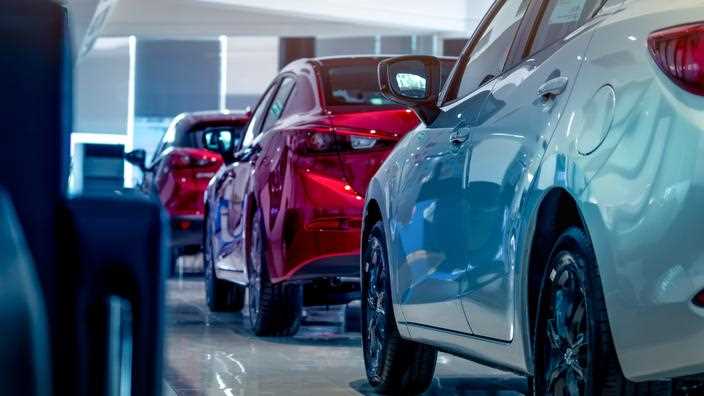The European Automobile Manufacturers Association predicts 10.5 million passenger car registrations in 2022.
Car sales are expected to rebound 7.9% in the European Union in 2022, while remaining far from their 2019 level, the European Automobile Manufacturers Association (ACEA) said on Tuesday. “With a stabilization of the microchip supply”, the ACEA predicts 10.5 million passenger car registrations in 2022, after a very weak year at 9.7 million in 2021.
SEE ALSO – Electronic components: Emmanuel Macron announces an investment of 6 billion euros
Read alsoAutomotive: the electrification of the market weighs on sales in Europe
While the European Commission presents its strategy on Tuesday to increase its production of semiconductors (the “Chips act“), with several tens of billions of euros of investment at stake, ACEA asks the Union to “reduce its dependence on non-European suppliers to avoid such damage in the future“.
After a sharp drop in 2020 linked to the Covid-19 pandemic, the automotive market was paralyzed in Europe and America in 2021 by this shortage of electronic chips, especially made in Asia, and essential for the manufacture of cars that still ship more technology.
One in five new cars in the EU is plug-in hybrid or electric
But the share of plug-in hybrid and electric vehicles has continued to rise: they now account for one in five new cars sold in the EU. “It remains a fragile market, very dependent on purchase aid and, above all, the availability of a charging network.said ACEA President and BMW CEO Oliver Zipse in a statement.
While the European Commission has proposed the end of petrol and diesel cars by 2035, the European Parliament and national governments are discussing continental standards for the deployment of electric charging stations. ACEA “hurry» the European Parliament and Council of «greatly strengthen» the proposal of the European Commission, «to ensure that Europe can build a sufficiently dense charging network“.
Read alsoAutomobiles: sales fall, customers doubt
The Commission proposed in 2021, as part of its “Fit for 55“that each country be equipped with at least 1 kilowatt of charging power per vehicle driving on its roads, and that charging stations be installed every 60 kilometers on the main road networks before 2026.”Sales of electric cars increased 10 times between 2017 and 2021, while the number of charging stations in the EU grew less than 2.5 times“said Oliver Zipse. “If we do not introduce ambitious targets for all EU member countries, a major obstacle will very quickly stand in front of us“.
SEE ALSO – For the climate, Merkel sees a “solution” in the automotive industry
